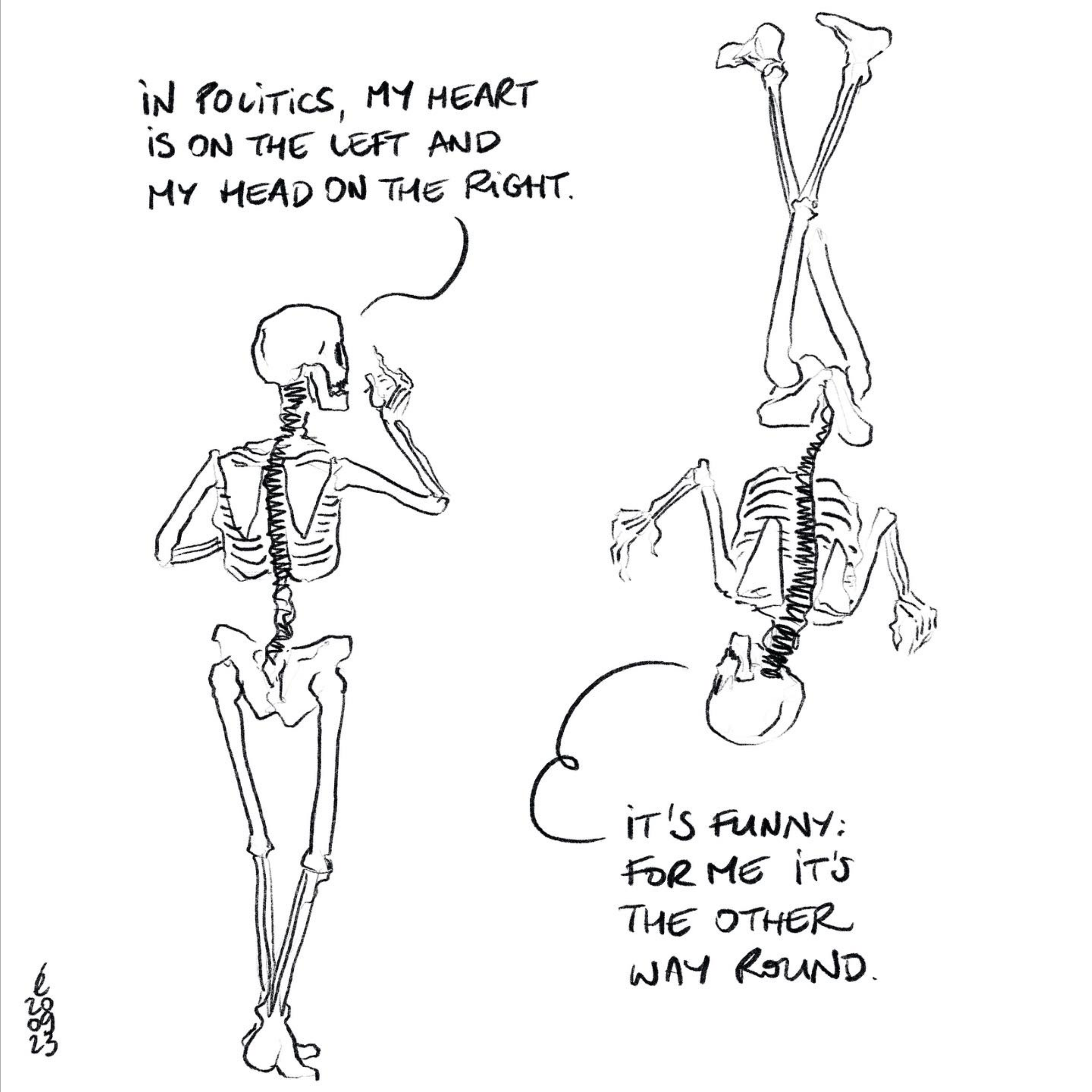Interviews
Cine Ciutat y Espai Texas Crowdfunding: a key tool for cultural initiatives
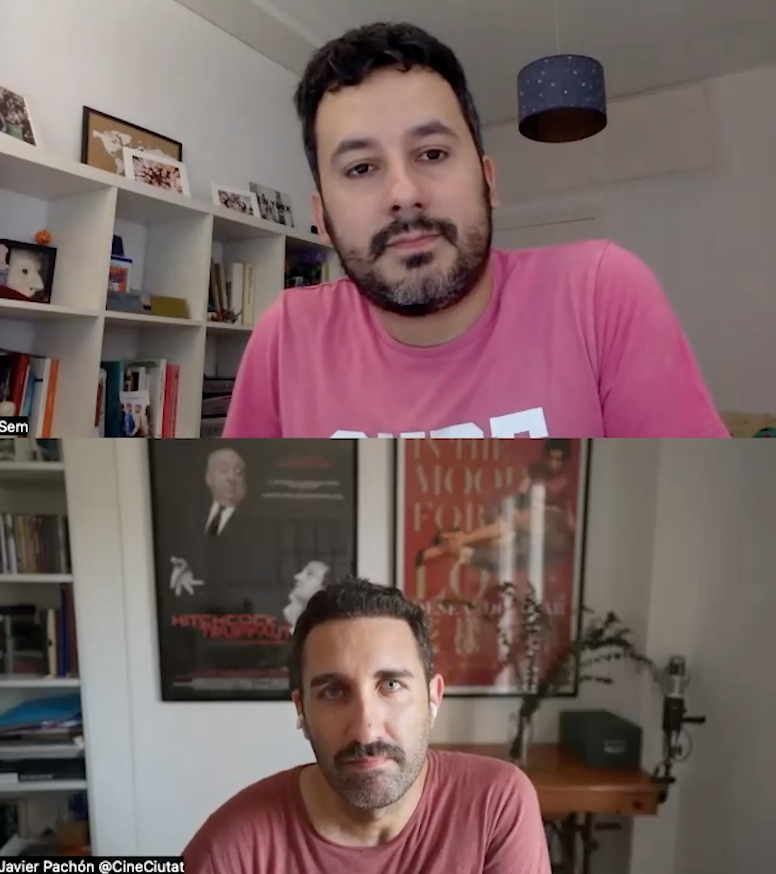
If you have ever doubted the power of community to save and transform cultural spaces, here are two initiatives that are changing the landscape of cinema in Spain: CineCiutat in Mallorca and the Espai Texas project in Barcelona. These two projects, driven by community and citizen participation, are redefining the concept of what a cinema can be.
CineCiutat is the result of a citizens’ movement that refused to allow their local cinema, the Renoir, to close its doors. Today, this cinema is self-managed by its members, and offers much more than just films: its programs include film classes, labs and a variety of events. CineCiutat members not only have a say in the cinema’s decisions, but also enjoy benefits such as 12 tickets a year, €4 tickets and discounts on entertainment. The structure of the organization is a model of participatory democracy, with a Board of Directors elected every two years by the assembly of members and three working circles composed of volunteer members of the association.
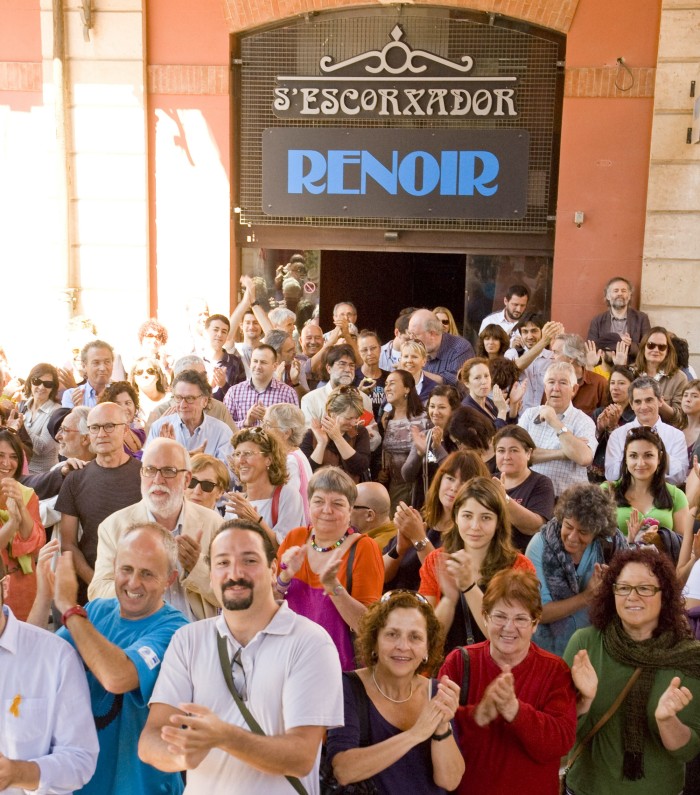
On the other hand, another exciting project has just been inaugurated a few months ago in Barcelona: Espai Texas. Its goal is to transform the old Texas cinemas into a new cultural space, which includes two movie theaters, a theater and a bar area at the entrance, and for this they have relied on a combination of public subsidies, private capital contributions and a crowdfunding campaign on Goteo.org.
CineCiutat and Espai Texas are living examples of how communities can intervene to save and transform cultural spaces. In a world where independent cinemas face constant threats, these projects are a reminder of what can be achieved when people come together for a cause they care about.
Fundación Platoniq: To begin with, I’d like to ask how you each came to your project and what got you so excited to get involved?
Javier Pachón (CineCiutat): I always say that I was like a dog chasing cars, because I had many interests and I was at a strange point in my life. But at that time I left just a volunteering, they closed the Renoir cinema here in Palma and they needed volunteers, people for the Board of Directors, and I signed up. As it had so many aspects: environmental, cultural, social, it brought together, from technological innovation, many of my interests. So it served me as a prism, as a very cool place to play. And here I have been playing for ten years, almost eleven years now.
Sem Pons (Espai Texas): Mi historia es larga pero la resumiré. Hace como un año y medio, Anna Rosa Cisquella, que es la productora ejecutiva de Dagoll Dagom, me dijo: mira, escúchame, a Isona Passola, que es muy amiga mía, productora de cine, le ha llegado a sus manos una posibilidad, que es la de recuperar los Cinemes Texas de Barcelona, y creemos que podría ser una buena idea que una de las salas sea un teatro. ¿A ti te gustaría hacerlo? ¿Te gustaría sumarte a la aventura? Dije que sí desde el minuto uno, porque además es algo que siempre me había apetecido mucho, tener un espacio propio, no solo comunicar, sino poder gestionarlo, poder programar, poder dar mi opinión, y desde el principio dije que sí. Además, el Texas es un lugar súper emblemático, y decir que no era muy extraño.
It is true that when we received the proposal, it was at the beginning of 2021, sorry, 2022, and we were still a little bit dragging our feet about Omicrons and Covid. It was practically suicide, but we said whatever, we jumped on the bike and we’ll see what happens.
We started as a platform, without a crowdfunding campaign, but it is clear that CineCiutat was born again through crowdfunding.
FP: They are two quite different initiatives. One has been going on for a decade, the other, although it’s a long-standing story, is starting something new. The question would be: what did you get out of the campaign, how did you experience it, what do you think of the impact it could have had?
ET: I have it more fresh, I have it super fresh. It has brought us a lot of things. When we got the proposal, we were not even sure we could rent the space because the ownership was changing. Until the end of March, which is when we launched the campaign, which was the first time we said publicly that it was going to happen. Until then it was an open secret. We had been talking about it with people in the profession and little else, we said: we are going to launch a sponsorship campaign, but we have no idea how it will be received.
When we announced it, we did the press conference, we launched the campaign on the first day, I don’t remember exactly, but I think we ended up with about 20,000 euros in the first hours. It was a, wow, this looks like it’s really looking good. We thought our target, at least mine, was 40,000 euros. And I said, sure we won’t make it, sure we won’t make it. But it’s been wonderful. The campaign has obviously helped us with the funding, because we needed it. Without that money, we couldn’t go ahead with the project. It was impossible.
And, beyond that, it generates community. And that was something that was essential for us. We didn’t want to be intruders who came in and did it behind people’s backs. The complicity that has formed with the people of the neighborhood, with Goteo, has been spectacular. Because we have been able to get to know people closely, we have been able to talk to them, many people have written to us, many people have told us things. To weave this network from the beginning, before opening, is very good.
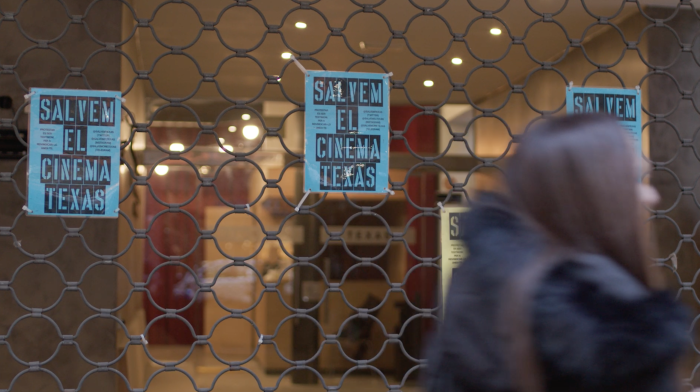
CC: Yes, in our case, we talked to you a couple of times. We started as a platform, without doing a crowdfunding campaign, but it is clear that CineCiutat was born again through crowdfunding. In 2019 we received a random inspection from the technical department of the City Council and they told us that the electrical installation was not in regulation and we had to make changes. But we didn’t have enough money to meet that expense. That’s when we decided to launch the campaign.
We started building it at the end of 2019 and launched it on February 12, 2020. We received a lot of support from people, which pleasantly surprised us. From Goteo they were very generous and gave us options to decide whether we wanted to expand or not. We decided to go ahead and got the necessary funds to make the changes in the facilities. Crowdfunding not only provided us with the economic resources, but also helped us reconnect with the community and discover new audiences.
El crowdfunding puede ayudar a establecer una relación más profunda con la comunidad y darle un sentido de pertenencia. En definitiva, el crowdfunding es una combinación de financiamiento y comunidad que puede apoyar y hacer crecer las iniciativas culturales y creativas.
FP: What do you think crowdfunding can do for initiatives in the world of culture and creativity?
CC: I think crowdfunding is a key tool for this type of initiatives. On the one hand, it allows to obtain the necessary economic resources to carry out the projects. Money is important to survive on a day-to-day basis. But at the same time, crowdfunding also helps to build a community around the project. It is a way to connect with people, generate synergies and discover new audiences. In addition, crowdfunding can help establish a deeper relationship with the community and give it a sense of belonging. In short, crowdfunding is a combination of funding and community that can support and grow cultural and creative initiatives.
FP: What has been your specific experience with crowdfunding?
CC: In our case, crowdfunding has helped us overcome difficult times and move forward. It has been a way to raise money, but it has also allowed us to connect with the community and generate a feeling of support and involvement. In addition, we have discovered new audiences and established relationships with groups and people we had not considered before. In short, crowdfunding has had a positive impact on our cultural project and has helped us to grow and stay alive.
ET: Patronage and community support have been key concepts to communicate and explain what we want to do. We have found in this form of financing a healthy way to convey our ideas and objectives. I don’t know how to express it exactly, but sponsorship has allowed us to convey what we wanted to explain and realize. We have also discovered many things, as Javier mentioned, that have been very useful to us. A neighbor from next door wrote to us informing us that we had a clogged pipe and didn’t know how to contact us until she found this option. It turns out she had wanted to tell us for three years, but didn’t know who to talk to.
We have learned stories about Texas from the last hundred years that we were completely unaware of, and this has allowed us to recover the memory of the space. Patronage has helped us do a lot of things, like bringing this space to life and interacting with the people in the area, which is exactly what we wanted to accomplish.
During this campaign, many neighbors have told us stories about Texas and its long history, things we would not have known if not for this.
FP: It seems that memory is an important issue for you…
ET: Yes, in our case, we want to vindicate the value of memory. When we started, we were like an elephant in a china shop. We were eleven people in a project that we knew to some extent as users, but we did not know all the details and subtleties of this space. During this campaign, many neighbors have told us stories about Texas and its long history, things we would not have known if not for this. They were stories of folk memory that would have been lost if we hadn’t discovered them. I found it fascinating. They’ve brought us photographs, they’ve told us that this place was a soup kitchen during the civil war…. These are things that we have developed in this campaign that we would not have known about.
CC: I think the combination of our project, focused on openness and roots, with the community’s patronage and support is very helpful to anyone who is looking at it. This is special for us, getting these emails and calls is incredibly rewarding on a personal level.
FP: It certainly sounds like an enriching experience. You have also mentioned that many people have the conception that sponsorship is only for starting a project, but it seems that this is not so in your case.
CC: Exactly, we carried out the crowdfunding campaign when we had already been working on the project for eight years. It’s not only about the financial aspect, but it helped us to reconnect with the project. It’s not just about the financial aspect, but it helped us reconnect with the community. Day-to-day life can be difficult, and sometimes you run into obstacles that complicate things. The campaign was very useful for us, as it put us back on the map both externally and internally, revitalizing our relationships with the community.
When you're in crowdfunding mode, you think and market differently. So, I think opening up the range of loyalty and opening up to the neighborhood is important.
FP: It is interesting that the campaign is not limited to the beginning or to emergency situations. We will now start permanent campaigns, which will last as long as necessary, and periodic contributions to provide ongoing support. We think this is an interesting option. There are various formats that we can explore and adapt to the needs of the project. How would you like to receive contributions from time to time or set up a membership renewal system, for example? What use would you find in this? Would you be interested?
ET: In fact, when we were planning the different stages of the communication and what we would do, we always had the issue of Goteo in the first phase, since we needed the money to start the project. At the beginning we didn’t see it as feasible, but we always had a second phase in mind, which is where we are now, so that we wouldn’t get stuck. We have to do what we have to do: attract partners, establish that connection of permanence with the project, as you say. Now you have already trusted us and helped us get started, but now we would like you to be part of the project on a regular basis. For us, Goteo is still a bit advanced, but when people start to see what we offer, it can be a tool to keep it going.
CC: I think the key word, as you said, is loyalty. From what you explain, Goteo’s tools, in this case, as tools available to adapt to the needs, seem interesting to me. It is true that, on the one hand, one can think like those people who told you before the campaign that it was one of the nicest things you can do in your life, and that you will not repeat it, because it ends up exhausting. But it is also true that, after a while, when you are calmer, you see the possibilities and the positive aspects of understanding Goteo as a service and a permanent connection that has different resources than the ones you have just as a space. When you are in crowdfunding mode, you think and market differently. Therefore, I think that opening the range of loyalty and opening up to the neighborhood is important.
Many times, in assembly and participatory movements, we have this personal experience. We come from a very archaic and primitive conception of participation, which hinders the evolution of a project.
FP: We know that CineCiutat has a volunteer program. Espai Texas I don’t know if they have taken it into account. Cineciutat, which has been around for a while, what strengths they find and difficulties, and to see if Espai Texas would find it interesting to create a network.
CC: For us, this is a journey, nowadays, and it would give for another conversation. The issue of volunteering is a journey that we are still on. We haven’t reached any specific point. We started with extreme horizontality and got to meetings where we voted on decisions. I had long hair and was in better shape, but after so many meetings, it can affect your health. We realized, through networking and community building, and having people who specialize in the subject, that their participation, collaboration and volunteering have much more modern and contemporary strands of participation than that extreme horizontality. Since 2018, we have been implementing a system based on holocracy and sociocracy, which promotes self-management and, above all, differs from consensus. It is a system that works by consent. If I trust you and we have decided that you will take care of this or your group will take care of this, we operate by consent. Here you are in control and we don’t have to make every decision as a group constantly. So, this evolution of the work system and combination of paid staff and volunteering has been a very interesting journey in this second part of the project.
We have been evolving. It helps to have this direct contact with the community and to be an active space with active listening and active participation mechanisms within your space with the community. It is important to be open to contemporary variables of participation and management. Many times, in assembly and participatory movements, we have this personal experience. We come from a very archaic and primitive conception of participation, which hinders the evolution of a project.
There are many people who want to participate and find people with the same values to build… we always say that Cineciutat was not saved by the cinephiles of Mallorca, but by the people, because we found many people who, as you say, because of philosophy or whatever, wanted to save it. Either by contributing economically, or by dedicating their time or their skills, because they shared this philosophy.
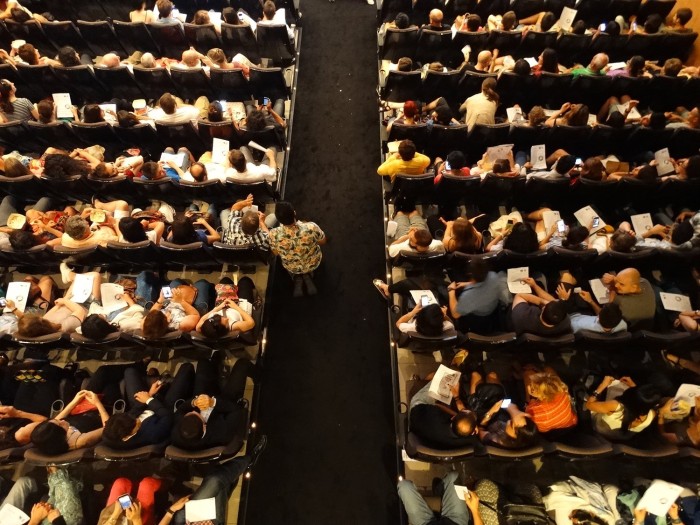
ET: What kind of society do we want? And that’s where we run into Texas. Do you want a society where you have a neighborhood movie theater, without having to travel to a multiplex or watch it on Netflix from home? Do you want a society where you can create community and tell your kids, “Look, there’s another way to watch movies, the way I lived when I was your age?” What kind of society do you want? There are many people who have been involved, either with their work, their time or other contributions. Because if we don’t put in work, money or something, the society we want won’t exist. I think that’s essential.
If we have the possibility to get together and promote the products or content that we consider, we have the power at the end of the day.
FP: Can you imagine a YouTube, but open source? A safe space where you can go to watch cultural content, and you don’t get cryptobross ads, or denialist ads… What should this space have for you to find it interesting?
ET: It should be ethical.
CC: Well, I was going to say no cryptobross ads, I don’t know if I’ll sign up, because that’s the main reason, those pre-rolls that in ten seconds solve your life, but I think this meeting point is crucial. We are in a conversation, in the world of cinema, about the translation of audiovisual consumption within the digital framework. Therefore, it is a topic that we have worked very hard on, and for me the crucial thing is, first, not to understand it as a binary discussion, but as a complementary one.
I think that a crucial part for a digital environment to be interesting, especially for the type of audience we are talking to, is both the ability to create community within the space and the curatorship within the space. Someone who takes you by the hand and guides you in this space, and if you have hands that can help you within this space of your own. Because the big difference for me right now between the digital space and the physical space, when the physical space does its work, is the curation and the accompaniment.
One of the social lessons that I think we’ve learned from the pandemic is that, before the pandemic we thought that as users what we wanted was a “black box” with all the content, with an infinite abyss of content. And when the pandemic came… We have a joke in the industry that the most watched show on Netflix is the home page, because you get lost in this abyss and you spend an hour looking for the movie you want to watch and you end up watching the fire episode of The Office again because you don’t know what to do anymore and you want to have a laugh for a while. So, I think that this curatorship, moving this accompaniment that we do in the physical spaces to the digital space, is key.
ET: It’s very interesting what you say, because one thing that many neighbors of Texas have told us is that “what I liked was to go to Texas to see what they did”, without knowing what they did, because they trusted the criteria of the space and said that “every Tuesday I go to the movies and they teach me whatever”, and you learned many more things and saw many more films than you probably would not have seen.
For me there is also a very philosophical part, we would enter into a super political debate, but whose power is it? That is, if we leave the power in the hands of large corporations like YouTube, Netflix, etc., we depend on decisions that affect what we can or cannot consume culturally. We are depriving ourselves. That is to say, we can choose among what we are offered, but if we have the possibility to get together among several and promote the products or content we consider, we have the power in the end. And that, as much as it may seem silly, in the long run we are seeing that it is not, because the algorithms that we always explain are not such a thing. Algorithms are people who make decisions and decide that the crypto-bro or fascist person’s content has many more views or is much more recommended than other cultural content that could open perspectives or diversities, that are not taken into account and are more set aside.
Who sets the narrative? At the end of the day, either they set it or you set it, and I believe that a cultural space is the one who has to set the story.
FP: Looking at where we are moving forward as a society, the latest cancellations of cultural events due to censorship are worrying. I don’t know if within the entity, with your colleagues, you are considering actions or alliances. From our point of view, the only way to stop fascism is in community. We must come together, explain ourselves, help each other, weave networks. This is the only way to solve this kind of problem. One person’s problem is everybody’s problem. If they are censoring a play that talks about a Republican teacher or a play that talks about eating disorders, they are censoring all of us. If we don’t get together, we have it complicated.
CC: Yes, I think it goes without saying much more, and it’s every day. This is not a campaign issue either, nor is it about a post, it’s about the day to day, opening the business and doing your job, our job. About what we were saying about the society we want, we and the programming of Cineciutat and the actions we do with other entities are based on a code of ethics, on a vision and values, and this influences us on a daily basis.
This work of not feeling afraid, of saying: oh, now I don’t do this event because… and doing it. If I did it yesterday, today I have to do it even more, with more conviction. I think that punctual and group actions are crucial, but then also this day-to-day work and that people see normally that on a Tuesday, any Tuesday, you can go and see a film on X or Z or whatever, I think that’s also important, and continue. Not pretend they don’t exist. Acting, not as a reaction to their existence, but from the proactivity of your existence seems to me key, because that plays a role in the collective subconscious that I think is important.
ET: Who sets the narrative? At the end of the day, either it is set or you set it, and I think that a cultural space is the one who has to set the story. That’s how, with the little things, the small day-to-day decisions, is how you mark your story, what films you program, what you do or don’t do, in our case in cinema and theater… What we do, what we don’t do, how we explain it, how we sell it.
In our particular case, which is something I have not said, but in the Cinemes Texas the cinema will be in Catalan, that is, either in original version or subtitled or dubbed into Catalan, and the theater, mostly, because not everything is in Catalan, and because there are many productions in Spanish that we also find interesting, but we want to go in that line. It is clear that these are political decisions that must be maintained day by day.
